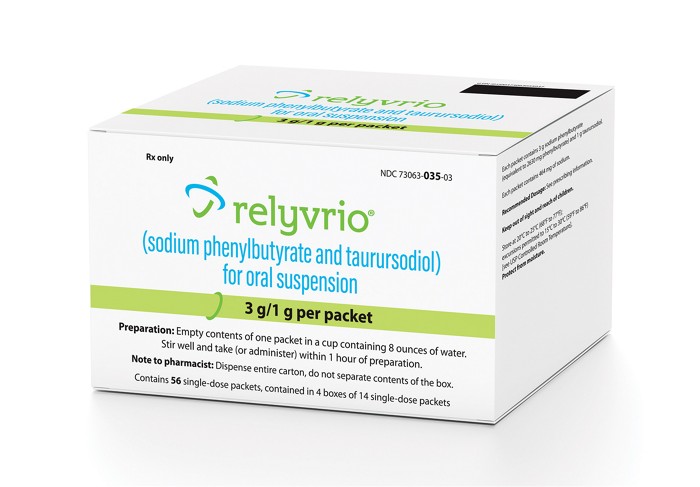Advertisement
Grab your lab coat. Let's get started
Welcome!
Welcome!
Create an account below to get 6 C&EN articles per month, receive newsletters and more - all free.
It seems this is your first time logging in online. Please enter the following information to continue.
As an ACS member you automatically get access to this site. All we need is few more details to create your reading experience.
Not you? Sign in with a different account.
Not you? Sign in with a different account.
ERROR 1
ERROR 1
ERROR 2
ERROR 2
ERROR 2
ERROR 2
ERROR 2
Password and Confirm password must match.
If you have an ACS member number, please enter it here so we can link this account to your membership. (optional)
ERROR 2
ACS values your privacy. By submitting your information, you are gaining access to C&EN and subscribing to our weekly newsletter. We use the information you provide to make your reading experience better, and we will never sell your data to third party members.
Neuroscience
Delix raises $70 million to synthesize psychedelic-inspired drugs
The start-up is designing molecules that help brain cells form new connections without causing hallucinations
by Ryan Cross
September 27, 2021

Delix Therapeutics has raised $70 million in series A financing to develop therapies inspired by psychedelics to treat neuropsychiatric and neurodegenerative diseases. The Boston-based start-up joins a list of more than a dozen drug companies developing psychedelic-based therapies for mental illnesses.
CEO Mark Rus says Delix is part of a “psychedelic renaissance,” in which doctors, scientists, and biotech investors are hoping to repurpose recreational drugs into mainstream medicine.
The magic mushroom-derived compound psilocybin, for instance, is emerging as a promising experimental therapy for major depressive disorder. The party drug ecstasy, also known as MDMA, has been hailed by doctors as a potential treatment for post-traumatic stress disorder. And a plant-derived compound called ibogaine, known for inducing introspective hallucinations, is under investigation as a treatment for people addicted to alcohol or opioids.
Despite these intriguing results, widespread prescription psychedelics are likely a long way off. Many academic and industry groups caution that psychedelics must be administered by trained psychotherapists who can help guide patients through their drug-induced hallucinations.
“We are cheering them all on,” Rus says, but he argues that the time and cost associated with psychotherapy and the side effects that accompany many psychedelics are limiting the number of people who could benefit from the drugs. “We need new approaches.”
Delix aims to create psychedelic-inspired compounds that heal without hallucinations. The idea is based on the work of David E. Olson, a neuroscientist and medicinal chemist at the University of California, Davis. In 2018, his lab published a study in animals showing that multiple kinds of psychedelics promote synaptogenesis, the formation of synapses that allow brain cells to communicate with each other.
To Olson, that study helped explain why taking psychedelics just once can sometimes produce long-lasting effects on behavior. The study also led him to conclude that his lab could design compounds that promote synaptogenesis without causing hallucinations.
In 2019, Olson cofounded Delix to recruit a team of chemists up to the task. The start-up uses psychedelic compounds as a starting point, tinkering with them to remove chemical groups linked to hallucinations and side effects like cardiac toxicity, while retaining structures important for promoting synaptogenesis. Olson jokes that he is “taking the fun out of fungi,” but he thinks the approach could lead to drugs that are safe enough to “take home and put in your medicine cabinet,” without the supervision of a psychotherapist.
But finding compounds that trigger synaptogenesis without spurring hallucinations could be difficult. Psychedelic drugs seem to exert both effects by binding to a serotonin receptor in the brain called the 5-HT2A receptor. Olson says it’s possible to find compounds that bind to 5-HT2A in a fashion that selectively promotes synaptogenesis. Although it’s well known that some receptors can trigger different outcomes depending on how they are activated, how, exactly, this will work for 5-HT2A receptors is at the heart of Delix’s research, Olson says.
His academic group has already published a couple of examples of novel compounds that may promote synaptogenesis without hallucinations, although the mechanism is not entirely clear and the molecules have only been tested in animals so far.
In 2020, Olson published an ibogaine analog dubbed tabernanthalog. That compound has antidepressant and antiaddictive effects in rodents. It also didn’t cause head-twitching, which scientists use as a proxy for hallucinations in rodents. And earlier this year, Olson and his UC Davis colleague Lin Tian developed a method for predicting whether compounds that bind the 5-HT2A receptor will be hallucinogenic or not, based on a fluorescent sensor that is tied to the movement of the receptor.
The team used the approach to predict that a psychedelic analog named AAZ-A-154 would be nonhallucinogenic. In tests, the compound had antidepressant effects in mice without causing the head-twitching linked to hallucinations.
Olson says Delix has synthesized about 1,000 compounds across at least eight classes of psychedelic compounds, including ergolines such as LSD, tryptamines including psilocybin and DMT, amphetamines such as MDMA, and iboga compounds like ibogaine. “Those are the main scaffolds,” Olson says, but there are others he won’t disclose yet. “We are not a one- or two-asset company. We’ve got a large pipeline coming out.”
The start-up aims to finish preclinical studies of its two lead compounds in time for Phase 1 clinical studies to begin near the end of 2022. Rus says both programs are for neuropsychiatric conditions, but he won’t disclose more details.
Rus adds that Delix’s drugs, although designed to encourage synaptogenesis in neuropsychiatric diseases, could also potentially mitigate, and maybe even reverse, the loss of brain-cell connections often seen in neurodegenerative diseases like Alzheimer’s. That research is likely years away from clinical testing.



Join the conversation
Contact the reporter
Submit a Letter to the Editor for publication
Engage with us on Twitter